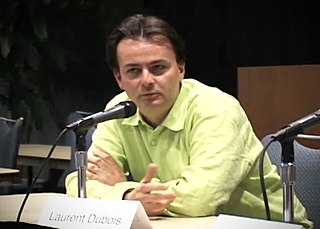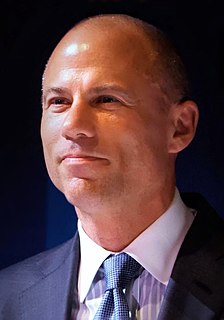A Quote by Terry Eagleton
Post-structuralism is among other things a kind of theoretical hangover from the failed uprising of ‘68, a way of keeping the revolution warm at the level of language, blending the euphoric libertarianism of that moment with the stoical melancholia of its aftermath.
Related Quotes
The transformations of the French empire itself or of French power structures themselves as well as the emergence of a kind of language of equal rights starting with the American Revolution and the French Revolution provided an opportunity and in some ways connected with other kinds of ground level desires or hopes and ideologies for freedom that were coming out of the plantation regime itself.
If libertarianism were easy to explain, and it weren't easy to exaggerate the effects of libertarianism, I think it would have been done already. Many many very intelligent people have applied themselves to crafting an agenda that people could grab ahold of. But the problem of course is that libertarianism isn't political. It is kind of anti-political. It wants to take a lot of things out of the political arena.
I studied Comparative Literature at Cornell. Structuralism was real big then. The idea of reading and writing as being this language game. There's a lot of appeal to that. It's nice to think of it as this playful kind of thing. But I think that another way to look at it is "Look, I just want to be sincere. I want to write something and make you feel something and maybe you will go out and do something." And it seems that the world is in such bad shape now that we don't have time to do nothing but language games. That's how it seems to me.
This [Barack Obama] administration has failed America's inner cities. Remember, it has failed America's inner cities. It's failed them on education. It's failed them on jobs. It's failed them on crime. It's failed them in every way and on every single level. When I am president, I will work to ensure that all of our kids are treated equally and protected equally.
In the future, we've forgotten it. It's disappointing to find out that the past is the present is the future. Nobody wants that. And yet, that's what it is. Maybe it's a kind of surrealist move, to use language like "post-racial" - thinking that if you create the language for it, it will happen. I wish it worked that way. But that's not our reality.
I'm not sure how far Derrida's later 'theological' interests are really rooted in post-structuralism or whether they don't rather reflect a kind of Kantian-Marxist trajectory - with a French twist on the centrality of liberty, equality and fraternity (cf. Politics of Friendship). Not to mention the role of Levinas and, behind Levinas, Judaism's twinning of eschatology and the call for justice.
One advantage of exhibiting a hierarchy of systems in this way is that it gives us some idea of the present gaps in both theoretical and empirical knowledge. Adequate theoretical models extend up to about the fourth level, and not much beyond. Empirical knowledge is deficient at practically all levels.
'The Washington Post' doesn't have to report on what I post on Twitter. CNN doesn't have to report on what I post on Twitter. All kinds of media outlets - they don't have to report on anything that I post on Twitter. Just like they don't have to report on all kinds of other things that other people post on Twitter.



































